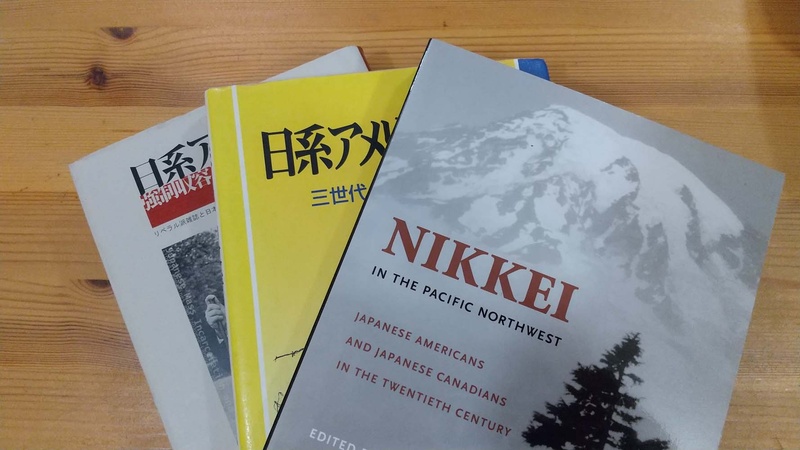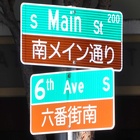The purpose of this column is to write about various things related to "Nikkei," or in other words, to touch on various things with "Nikkei" as a keyword. To be honest, I thought it would be easier to write if I kept the topic range as broad as possible, but before I start, I want to think about what "Nikkei" is in the first place.
Given that the website is called Discover Nikkei, one can imagine that "Nikkei" is a unified concept that now carries great meaning, but the website states that "Nikkei refers to people of Japanese descent, that is, Japanese immigrants and their descendants, or "Japanese ancestry," who have created communities all over the world."
In other words, Nikkei means a person of Japanese descent. He then goes on to explain the meaning of "Japanese descent" as follows:
The term "Japanese-American" has multiple and diverse meanings depending on the situation, place, and environment. Japanese-Americans include people who identify as Japanese-Americans even if they have mixed races. Japanese people in Japan also use the term "Japanese-American" to refer to people who emigrated from Japan to other countries and their descendants who returned to Japan. Many of these Japanese-Americans form close-knit communities and have a different identity from Japanese people in Japan.
There is "Japanese" but no "Japanese-American"
As is clear from this, the term "Japanese American" cannot be easily defined. The definition of "Japanese" and "Japanese descendants" in the study of Japanese American and Japanese American society is even more complicated, so I will touch on this point later and consider it from the general understanding of the words themselves.
First of all, "Nikkei" is a Japanese word, made up of "Japan" and "kei." The kanji "kei" has the meaning of "connect, to be connected," as well as "lineage, family line" (Kadokawa Chinese-Japanese Dictionary). The word "lineage" (which has the same meaning as bloodline) means this.
Next, I looked up "Japanese-American" in a dictionary I have on hand, and it says, "Something of Japanese descent. Also, a person like that" (Daijirin), and the usage is given as "Japanese-American." Kojien also says, "Something of Japanese descent," and gives the example of "Japanese-American."
In other words, the general interpretation seems to be that the word "Japanese" itself means connected by "chisuji (bloodline)." Therefore, it seems that "Japanese-American" refers to someone who is of Japanese descent. However, while "Japanese-American" is found in the dictionary, "Japanese-American" does not appear.
Perhaps it was deemed not to be well known enough to be included in the dictionary, but in any case, there is no clear definition of the word.
Are Japanese people also of Japanese descent?
If you think about it, this is strange, because if you read or research anything about "Japanese" people, such as immigration, migration, Japanese America, or Japanese Brazil, you will frequently come across the word "Japanese descendants." Just the other day, the word "Japanese descendants" appeared frequently in the newspaper.
"Japanese American internment: Biden calls it 'one of the most shameful events in American history'" (February 19, Mainichi Shimbun)
As the headline says, the word "Japanese American" was used many times in news related to the 80th anniversary of the internment policy of Japanese Americans during the Pacific War. This is not limited to this time, but the word "Japanese American" appears in articles about Japanese Americans during the war.
In reality, most of the people who were put in the internment camps were Japanese who had emigrated from Japan (first generation immigrants) and the next generation, the second generation. The second generation immigrants were born in America, so they were American by nationality. Therefore, the "Japanese-American" in the article refers collectively to both Japanese and Americans (of Japanese descent).
However, while we can think of "Japanese" as "people of Japanese descent," most Japanese would think of "Japanese-Americans" as people different from themselves. In other words, Japanese-Americans do not include Japanese people.
If that is the case, it is not appropriate to say that those interned were "Japanese Americans," as the newspaper article states. However, in articles like this, newspapers and many other media outlets lump all Japanese people in America together as "Japanese Americans."
I always use the terms "Japanese and Japanese-Americans" or "people of Japanese ancestry" to describe those who were placed in internment camps during the war.
Given the original meaning of the word, this is the only option, but it seems to me that the newspaper believes that it is appropriate to call someone "Japanese-American" if they have roots in Japan but have now put down roots in a foreign country like America.
A new Nikkei feel
This is getting rather complicated, but with regard to "Japanese descendants" and "Japanese people," Mr. Shigeru Kojima of the Japanese Overseas Migration Museum has written an article on this site from his perspective as a researcher entitled " Who are Japanese people? " (April 21, 2017).
According to the article, historically, the term "Japanese-American" was not found in prewar publications, but was used in Japanese communities overseas and in Japan after the war. The definition of "Japanese-American" is, so to speak, from the Japanese perspective. Indeed, the use of the term "Japanese-American" in the newspaper article above seems one-sided from the Japanese perspective.
The article goes on to note that apart from this view from the Japanese side, Japanese communities overseas have begun to have their own unique ways of thinking about Japanese people.
The definition of the word nikkei, discussed at conferences organized by Japanese people themselves in 2000 and 2001 (Nikkei 2000, COPANI 2001), emphasizes the importance of individual consciousness regardless of bloodline. Kojima says that this is a movement that, regardless of bloodline, "people who are deeply involved in the nikkei community and who consider themselves to be nikkei are also nikkei."
Starting from the original meaning of the word, when I tried to find out what "Japanese-American" is, I almost got lost in a maze. However, that is exactly why it is so profound, and there is so much to explore.
From next time onwards, I would like to specifically touch upon various "Nikkei" (Japanese-related) topics.
© 2022 Ryusuke Kawai







